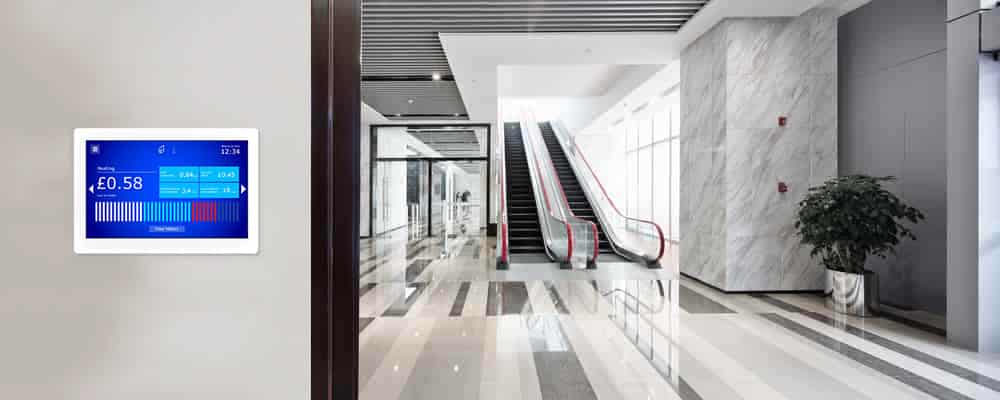Every year, buildings around the world consume a significant portion of the world’s energy resources. According to the International Energy Agency, buildings and building construction sectors combined are responsible for 30% of global energy consumption and nearly 27% of total energy sector emissions. As concerns over environmental sustainability continue to rise, many are seeking innovative solutions to reduce energy consumption – enter Building Management Systems (BMS).
A Building Management System is a computer-based control system installed in buildings to manage and monitor equipment such as ventilation, lighting, power systems, fire systems, and security systems. With a primary objective of improving occupant comfort, reducing energy usage, and operating building systems efficiently, a BMS can be a crucial tool for energy conservation.
How exactly does a BMS contribute to energy reduction? Here’s how:
Optimisation of Building Operations
A BMS monitors and controls various aspects of a building’s operations, such as heating, cooling, and lighting. By analysing real-time data, it can automatically adjust the operations to run in the most energy-efficient manner. For example, it can dim or switch off lights in unoccupied areas or adjust the temperature based on the number of people in a room.
Preventive Maintenance and Fault Detection
Building Management Systems can identify and notify operators of any faults or inefficiencies in the building’s systems. For instance, a BMS can detect if HVAC systems are operating sub-optimally, consuming more energy than necessary. By identifying these issues early, operators can address them before they escalate into bigger problems, leading to more energy waste.
Energy Usage Data Analysis
BMS provides detailed insights into a building’s energy usage patterns. By analysing this data, building managers can identify areas where energy is being wasted and take corrective actions. Furthermore, these data-driven insights can inform future designs and operational strategies for better energy efficiency.

Integration of Renewable Energy Sources
Modern BMS can integrate renewable energy sources, like solar panels or wind turbines, into a building’s energy system. By efficiently managing these renewable sources alongside traditional systems, a BMS can significantly reduce a building’s reliance on non-renewable energy.
Real-Time Monitoring
Building sensors are the backbone of a building management system providing real-time monitoring. Their ability to collect and transmit valuable data informs demand-based control, for example temperature sensors monitor room temperatures, allowing the BMS to regulate heating and cooling systems efficiently.
Humidity sensors help maintain optimal moisture levels and light sensors detect ambient lighting conditions, enabling the BMS to adjust lighting accordingly. These sensors continuously relay data to the BMS, allowing it to make informed decisions and take necessary actions promptly, resulting reduced energy consumption, cost savings, and also enhanced occupant comfort and safety.
Ensuring Seamless System Integration through Interoperability
For a Building Management System to effectively orchestrate the diverse range of equipment within a facility – from HVAC and lighting to security and renewable energy inputs – seamless integration is paramount. This is where the importance of interoperability and adherence to open communication protocols, such as BACnet or Modbus, comes into play.
These standards enable different systems and devices, often from various manufacturers, to ‘speak the same language.’ This ensures that data flows reliably between all components and the central BMS, allowing for truly holistic monitoring, a unified control strategy, and the flexibility to incorporate best-in-class technologies.
Without robust interoperability, a BMS might operate in silos, limiting its potential for comprehensive energy optimization and operational efficiency.
Demand Response Capabilities
Some Building Management Systems can also interact with local utility pricing structures to take advantage of lower energy rates during off-peak times. This demand response capability not only saves money but also reduces strain on the electrical grid during peak demand periods.
Building Management Systems are not a magic bullet for energy waste, but when effectively used, they can significantly contribute to reducing a building’s overall energy consumption. As energy prices continue to rise and environmental concerns grow, the role of BMS in energy conservation will only become more important. The move towards more intelligent, connected, and sustainable buildings is not just a trend, but a necessary step towards a more energy-efficient future.
Conclusion
In an era of increasing environmental consciousness and rising energy costs, isn’t it time to equip your building with the best-in-class environmental sensors and controllers? Titan Products is at the forefront of delivering innovative solutions that not only help reduce energy consumption but also improve overall building efficiency and comfort.
Are you ready to step into the future of sustainable building management? Be a part of the solution with Titan Products. Explore our range of environmental sensors and controllers today and find the perfect solution tailored to your needs.
